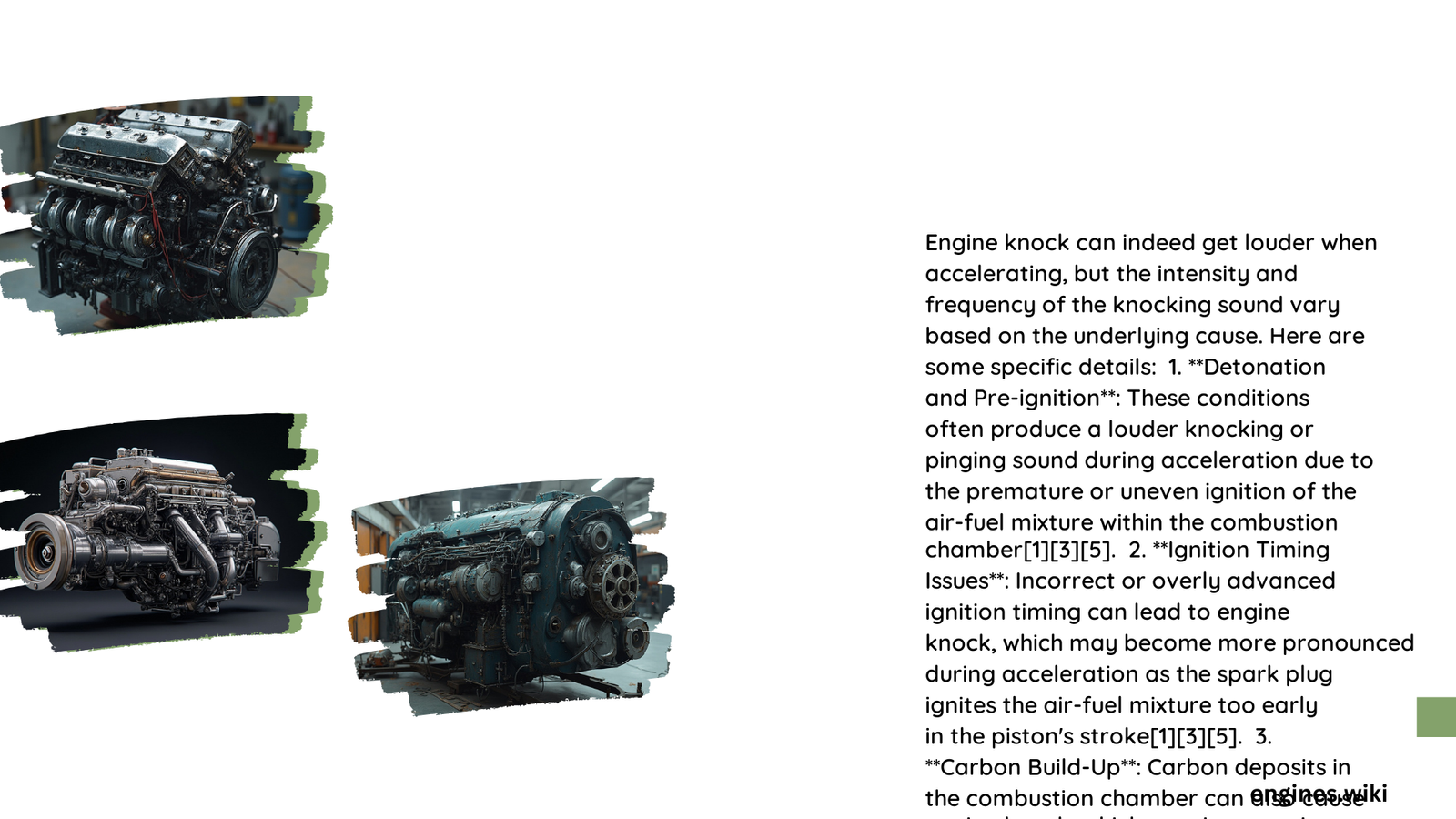Engine knock represents a critical mechanical phenomenon where abnormal combustion sounds emerge during vehicle acceleration, potentially signaling underlying mechanical issues. When an engine experiences knock, the intensity often increases during acceleration due to complex interactions between fuel-air mixtures, mechanical tolerances, and combustion chamber dynamics. Understanding these nuanced mechanisms can help vehicle owners diagnose and address potential performance-threatening problems before catastrophic engine damage occurs.
What Causes Engine Knock During Vehicle Acceleration?
Why Does Engine Knock Intensify Under Acceleration?
Engine knock typically becomes more pronounced during acceleration due to several interconnected mechanical factors:
- Combustion Dynamics
- Increased cylinder pressure
- Higher thermal stress
-
Rapid fuel-air mixture changes
-
Mechanical Stress Factors
- Enhanced crankshaft rotational forces
- Elevated connecting rod movements
- Increased thermal expansion
What Are the Primary Mechanisms Behind Acceleration-Related Knock?
| Knock Type | Acceleration Impact | Potential Consequences |
|---|---|---|
| Pre-Ignition | High intensity increase | Potential engine damage |
| Detonation | Moderate intensity rise | Reduced engine efficiency |
| Rod Knock | Gradual intensity escalation | Significant mechanical wear |
Detailed Knock Mechanism Analysis
Pre-ignition occurs when fuel-air mixtures combust prematurely, creating uncontrolled pressure waves inside combustion chambers. During acceleration, these pressure differentials become more pronounced, leading to more intense knocking sounds.
How Can Drivers Identify Acceleration-Related Engine Knock?
Diagnostic Indicators:
– Sharp metallic pinging noise
– Increased sound intensity during low-speed acceleration
– Rhythmic tapping under load
– Performance reduction
What Technical Factors Influence Knock Intensity?
Several technical parameters contribute to knock behavior during acceleration:
- Fuel Octane Rating
- Lower octane fuels increase knock probability
-
Premium fuels provide better combustion stability
-
Engine Design Considerations
- Compression ratio
- Combustion chamber geometry
- Valve timing mechanisms
Can Engine Knock Cause Long-Term Damage?
Persistent engine knock can lead to:
– Accelerated component wear
– Potential piston and cylinder wall damage
– Reduced engine lifespan
– Compromised overall vehicle performance
Recommended Diagnostic Approaches
Professional Assessment Methods:
– Comprehensive OBD-II scanning
– Acoustic diagnostic techniques
– Compression pressure testing
– Visual mechanical inspection
Prevention and Mitigation Strategies
- Use recommended fuel octane ratings
- Perform regular maintenance
- Address early knock symptoms promptly
- Consult professional mechanics for thorough diagnostics
Key Takeaways

Engine knock during acceleration represents a complex mechanical interaction requiring careful diagnosis and proactive management. Vehicle owners should remain attentive to unusual sounds and performance changes, understanding that early intervention can prevent significant mechanical complications.
Technical Expertise Insights
Experienced automotive technicians emphasize that while engine knock can manifest differently across vehicle types, the fundamental mechanisms remain consistent. Proper understanding and timely response are crucial for maintaining optimal engine health.
Final Technical Observation
Modern vehicle engineering continues to develop advanced knock detection and mitigation technologies, demonstrating the ongoing importance of addressing this critical mechanical phenomenon.
Reference:
– https://blog.amsoil.com/why-does-my-engine-knock-3-possible-explanations/
– https://www.capitol-chevy.com/service/information/what-causes-a-knocking-noise-in-your-vehicle.htm
– https://www.tiresplus.com/blog/maintenance/engine-knock/
